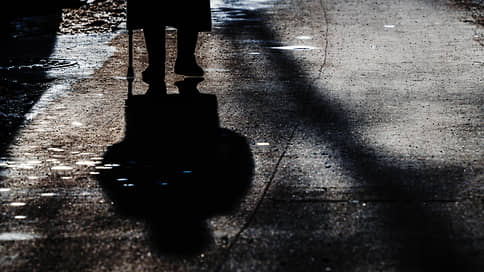Dementia: symptoms, signs, how to fight
[ad_1]

What is dementia, what is the reason for the violation of cognitive and mental abilities and how to recognize the disorder – in the material “Kommersant”.
Dementia is a symptom of the development of a neurodegenerative disease associated with the loss of certain abilities due to changes in the brain. The loss of cognitive functions – thinking, memory and orientation in space – significantly reduces the quality of life and interferes with the daily activities of the patient. Although it mostly affects the elderly, dementia is not a normal part of aging. According to the World Health Organization, about 55 million people live with this disease in the world.
What causes dementia
There are several neurodegenerative diseases that lead to disruption of the brain, destruction of nerve cells and the development of dementia. The most common cause is Alzheimer’s disease.
Forms of dementia:
- vascular;
- frontotemporal;
- dementia with Lewy bodies;
- mixed (combination of two states).
Because both vascular dementia and Alzheimer’s disease are common (especially in the elderly), they can be present at the same time.
Among other reasons:
- stroke;
- Parkinson’s disease;
- Huntington’s disease;
- traumatic brain injury.
How does dementia manifest?
According to statistics, about a third of people over the age of 85 may have some form of dementia. Forms and symptoms depend on which area of the brain is affected.
Among the signs:
- memory loss;
- lack of interest in everyday life;
- confusion;
- inability to control your emotions;
- difficulties with speech and word selection;
- disorientation in space and time;
- problems with problem solving and planning;
- impaired coordination and motor functions.
- inappropriate behavior;
- depression;
- paranoia;
- hallucinations.
Vladimir Khavinson, Director of the St. Petersburg Institute of Bioregulation and Gerontology, Vice President of the Gerontological Society of the Russian Academy of Sciences:
“Dementia and subsequent Alzheimer’s begin to develop most often after the age of 60 and double in severity every ten years, both in brain damage and memory loss. This problem comes out on top in a world where the globalization of human aging is great. For example, in St. Petersburg, 25% of the population, 1.5 million inhabitants, are pensioners, and at the same time, the increase in life expectancy of people is accompanied by an increase in dementia and cases of Alzheimer’s disease. Problems arise in any person, but in people with a high level of education and intellectual activity, Alzheimer’s disease develops later. Among workers, this happens earlier, especially if the history of life is associated with alcoholism, an unhealthy lifestyle.”
Diagnosis and treatment of dementia
There is no single test to diagnose dementia. When signs appear, seek help from a specialist, such as a neurologist, psychiatrist, psychologist, or geriatrician. During the initial consultation, the doctor will conduct a medical examination, ask clarifying questions and collect data on the patient’s life history, prescribe an examination, if necessary, and send for tests. First of all, the presence of an underlying, potentially treatable condition in a person that has led to cognitive impairment is assessed. This may be necessary to rule out brain tumors, stroke, hydrocephalus, or other conditions that may cause mental loss.
The following methods are used to diagnose dementia:
- tests to assess memory, language and math skills, sensory responses and reflexes;
- CT or MRI to detect changes in the structure of the brain or other organs;
- a genetic test to determine the risk factor for dementia;
- blood analysis.
If the underlying disease is not treatable, then supportive therapy is prescribed to improve mood and correct behavior.
Dementia ranges from mild, with minor changes in behavior, to the most severe, when the person is completely dependent on others.
Early signs are almost invisible. Common symptoms to look out for at the initial stage:
- memory problems, especially remembering recent events;
- reduced concentration of attention;
- change in behavior and sleep patterns;
- apathy, isolation, depression.
Signs that dementia is progressing:
- it is increasingly difficult for the patient to speak and find the right words;
- Difficulty performing daily tasks, including brushing your teeth and preparing meals
- reduced rational thinking;
- increased anxiety, feelings of sadness and suspicion;
- Need extra help with daily activities such as grooming, going to the bathroom, bathing and eating.
Prevention
It is important to pay attention to concomitant diseases – monitor the state of health after a stroke, control blood pressure and cholesterol levels. For example, smokers are more susceptible to atherosclerosis and vascular dementia. In some cases, the problem is caused by overuse of drugs, exposure to heavy metals, vitamin deficiencies, and infections.
Vladimir Khavinson, Director of the St. Petersburg Institute of Bioregulation and Gerontology, Vice President of the Gerontological Society of the Russian Academy of Sciences:
“Sleep is important, lack of sleep, which also lead to increased dementia, as well as chronic stress. With Alzheimer’s disease, which has passed the stage of dementia and developed, nothing can be done, there are no drugs. But there is a way to prevent the problem at an early stage of development. It was in Russia, together with an American laboratory, that a drug with components from the brain and blood vessels was developed, which, in the course of experiments with animals, made it possible not to cure, but to prevent the development of Alzheimer’s disease and Huntington’s disease, close to it. This development is already undergoing clinical trials, we are waiting for the effect, and most likely, the future solution to the problem is the prevention of the disease at the initial stage of its development.”
[ad_2]
Source link








